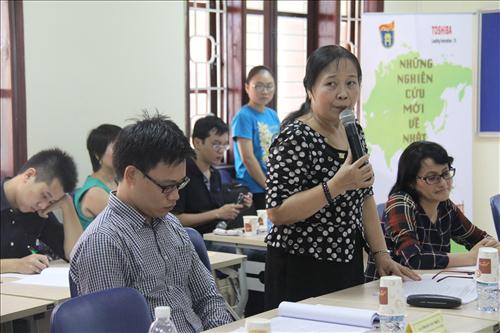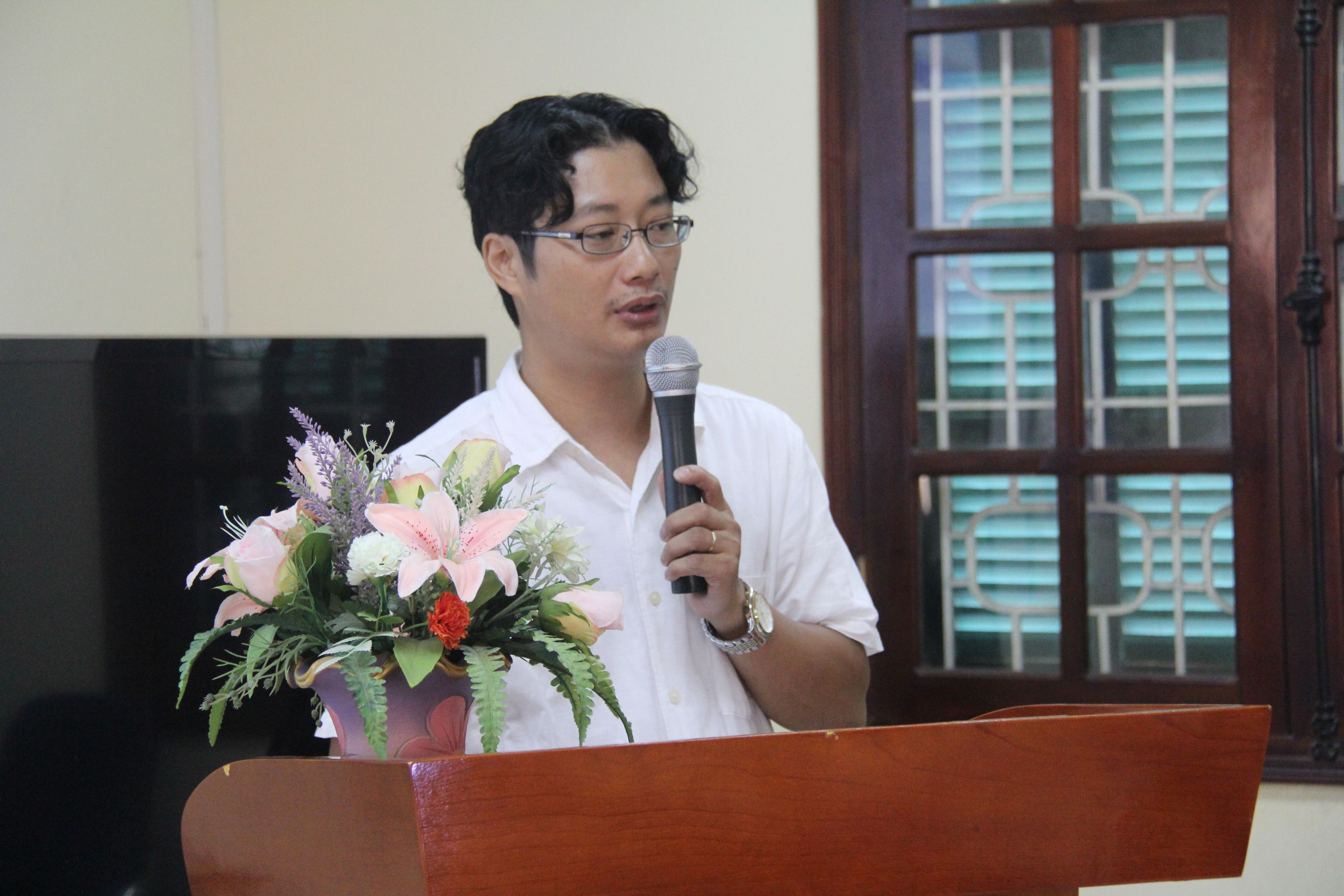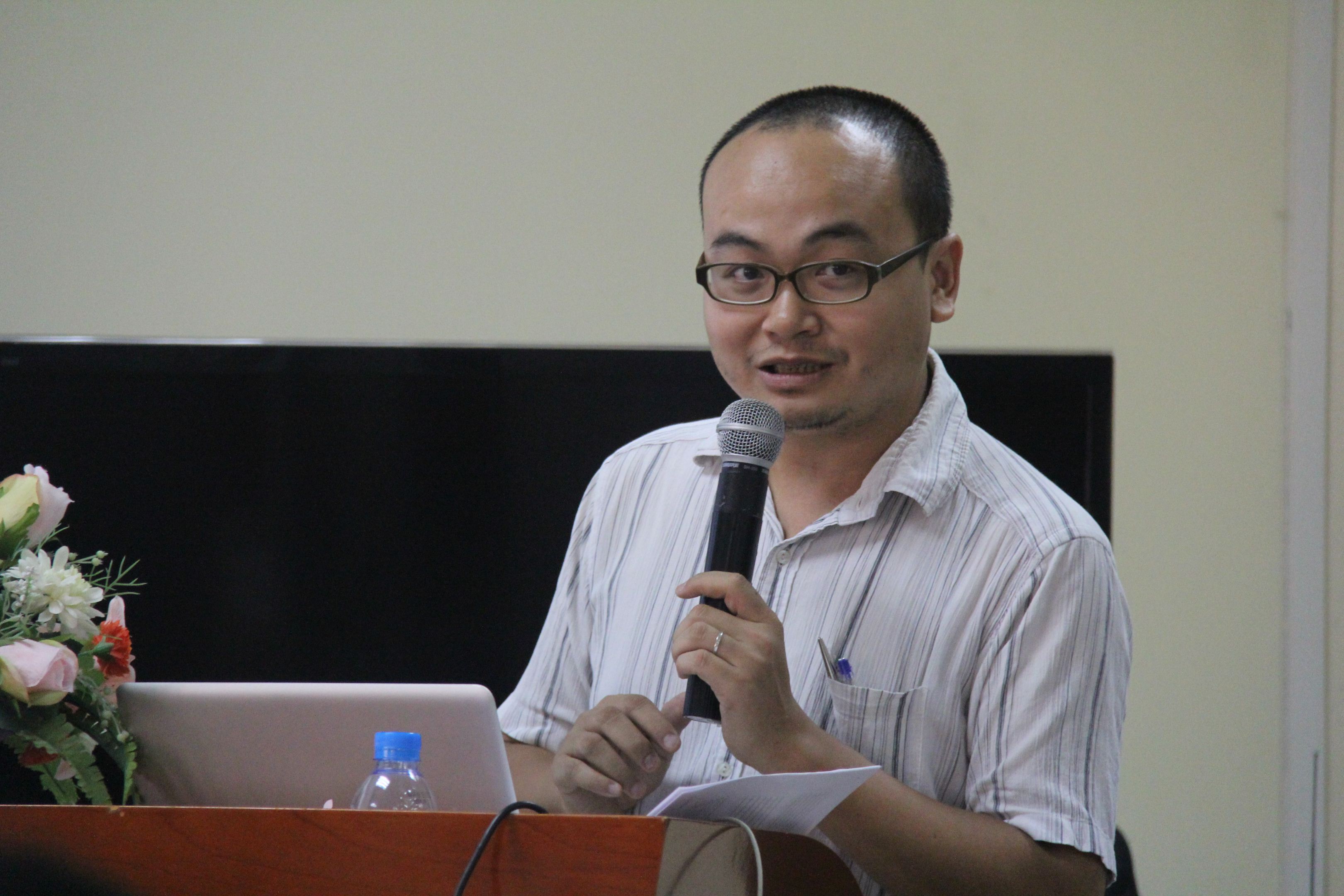
At this seminar, young researchers presented two new studies.
Dr. Pham Hoang Hung (Department of Japanese Studies, Faculty of Oriental Studies) presented a report titled "The Inheritance Issue of Women in the 'Goseibai Shikimoku' Code of the 13th Century (Japan) and the 'National Dynasty Criminal Code' of the 15th Century (Vietnam)." The report summarized the two codes and clarified that both recognized women's right to inherit property. This is a viewpoint absent from the model legal system of China. From this, the author argues that Vietnam and Japan were feudal states with agricultural economies and recognized private property.

PhD candidate Pham Hoang Hung presented a report titled "The Inheritance Issues of Women in the 'Goseibai Shikimoku' Code of the 13th Century (Japan) and the 'National Dynasty Criminal Code' of the 15th Century (Vietnam)".
Commenting on the paper, Associate Professor Phan Hai Linh (Department of Japanese Studies, Faculty of Oriental Studies) stated that the paper addresses an interesting issue in Vietnamese and Japanese history: women's inheritance rights in the context of feudal society. It clarifies the key issue of women's inheritance rights as expressed in the two legal codes and utilizes many valuable original sources for reference. Associate Professor Vu Thi Phung (Faculty of Archival Studies and Office Management) considers this a significant topic not only for identifying the past but also for revealing the views of contemporary states on the role and position of women. However, the paper needs to analyze the position of women in contemporary society in Japan and Vietnam in greater depth, and should also refer to other articles on the issue of women's inheritance in feudal law in general and the Hong Duc Code in particular.
Dr. Vo Minh Vo (Department of Japanese Studies, Faculty of Oriental Studies) presented a report titled "The Presence of Karayuki-san in Southeast Asia from the Late 19th Century to the 1920s". The report examines the relationship between Japan and Southeast Asia based on research into the presence of Japanese women working abroad, also known as karayuki-san, in Southeast Asia from the late 19th century to the 1920s, through Japanese records and statistics. The presence of karayuki-san overseas, including in Southeast Asia, is a social phenomenon that emerged alongside the large-scale migration of Japanese people abroad.

Dr. Vo Minh Vu presented a report titled "The Presence of Karayuki-san in Southeast Asia from the Late 19th Century to the 1920s".
Commenting on the article, Dr. Pham Van Thuy (Faculty of History) stated that the author's choice of a socio-historical issue – the prostitution activities of Japanese women in Southeast Asia – is a novel approach. Dr. Nguyen Manh Dung (Institute of Policy and Management) argued that the author had conducted a comprehensive and systematic study of the presence of karayuki-san in Southeast Asia in terms of number, age, and occupation; however, some points need further clarification, such as the presence of karayuki-san in Southeast Asia and Vietnam, the concept of "social phenomenon," and some documents from Japanese oral history.
The series of seminars "New Research on Japan and Asia," sponsored by the Toshiba Foundation, aims to promote research and academic exchange among young researchers, while also fostering the sharing of new scientific research findings on Japan in particular and Asia in general.
Author:Tran Minh, Photo: Thanh Ha, Video: Dinh Hau
Newer news
Older news